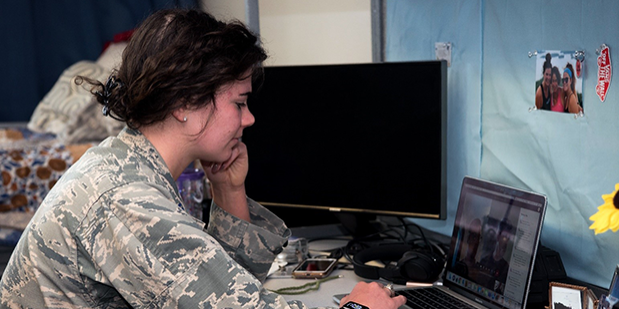Technological advances and changes in economic conditions are shifting the skills needed to build an adaptive and successful workforce. As underscored in the 2023 National Defense Science & Technology Strategy, the United States cannot create 21st-century capabilities using 20th-century education practices. The World Economic Forum (WEF) further predicts that by 2025, 50% of all workers worldwide will need reskilling to compete in the market. The increasing reliance on technology in jobs across the market has imposed additional challenges for the workforce, especially for those from low-income and historically marginalized populations.

A senior cadet attends a class remotely via video chat from her dorm room on March 19, 2020 in Vandenberg Hall at the U.S. Air Force Academy. DARPA program manager Wil Corvey envisions AI tutoring as a way to enhance remote and self-directed learning (U.S. Air Force photo/Trevor Cokley).
January 23, 2024 | Originally published by DARPA on January 22, 2024

